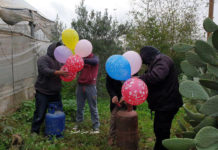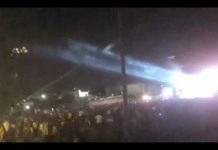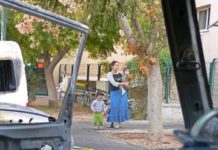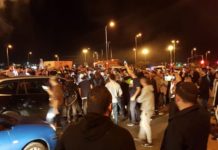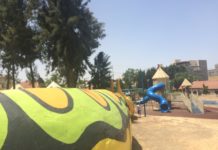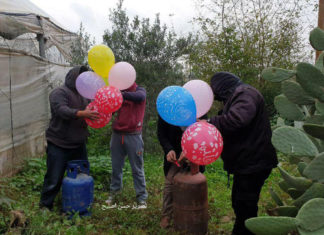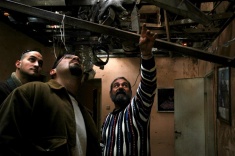
“This is our first visit to Sderot,” said Valentina Maggiulli, the Jerusalem local program coordinator for EAPPI. “We know the situation in the West Bank and Gaza very well. We felt it was important to see the situation in Sderot as well.”
EAPPI has church personnel stationed in Hebron, Yanoun, Tulkarem, Jerusalem, Jayyous and Bethlehem. Personnel come from countries all over Europe to help negotiate resolutions and facilitate peace activities in strategic locations.
I asked the group about setting up an office in Sderot.
Maggiulli pauses and replies: “There is nothing we can do to stop the Qassams. We work in areas where we are able to negotiate with people. There is nothing we can verbally do in Sderot to stop these rockets.”
The Ecumenical Accompaniers serve in various capacities within local churches, work with Israeli and Palestinian NGOs, and with Palestinian communities. The members who visited Sderot often times stand at road blocks in the West Bank, speaking and working with Palestinians and Israeli soldiers.
A trip to the Sderot police station, where the group photographed the hundreds of rockets on display and a stop at a Sderot home heavily damaged by rocket fire back in February, helped illustrate to the group what Israeli residents in southern Israel live with on a daily basis.
Group members listened attentively to Chava Gad, Sderot’s Parents Association spokeswoman who related her experiences as a wife and mother living with rocket terror.
“I can’t sleep, eat, or function as I once used to,” says Gad. “I miss laughing and being able to be the wife and mother I once was.” “The rocket terror has taken over my life.”
Gad described how she and her youngest son, Yanai, were walking once through Sderot when the red-alert siren sounded. “There was no bomb-shelter in sight. We heard a rocket explode near by. My son got down on the ground and I sheltered him with my body. He told me then, “Mommy, I’m too young to die.””
“My son is too young to be thinking like this,” says Gad.
Gad’s apartment building has been hit three times in the past by rocket fire. She says she refuses to remain alone in her house for fear of being struck by a rocket and no one home to help her.
“My kitchen windows are boarded up so if a rocket strikes again, there will be no glass for the rocket to shatter.”
Gad is under heavy medication to help her sleep at nights and wake up in the mornings. “I used to be an office manager but I haven’t been able to work for two years now,” Gad tells the group. “Today I am so nervous that I can’t concentrate long enough to bake cookies with my daughter.”
Members of the groups jot notes down. Chava’s traumatic reality is condensed into a few short sentences but it has made a startling impression on the listeners.
During the lunch break, one of the EAPPI members, the Swedish representative, relates to me that many of the Palestinians which he deals with in the West Bank and elsewhere, do not want Hamas in power. “It is the lower-middle class Israeli living in southern Israel that is paying the heavy price for their rocket terror,” I tell him.
And unfortunately it is not only Hamas who terrorizes Israeli civilians like Chava Gad and her family, but the more overlooked Fatah’s Al-aqsa Martyr Brigades who commit a significant share of rocket terror as well.



